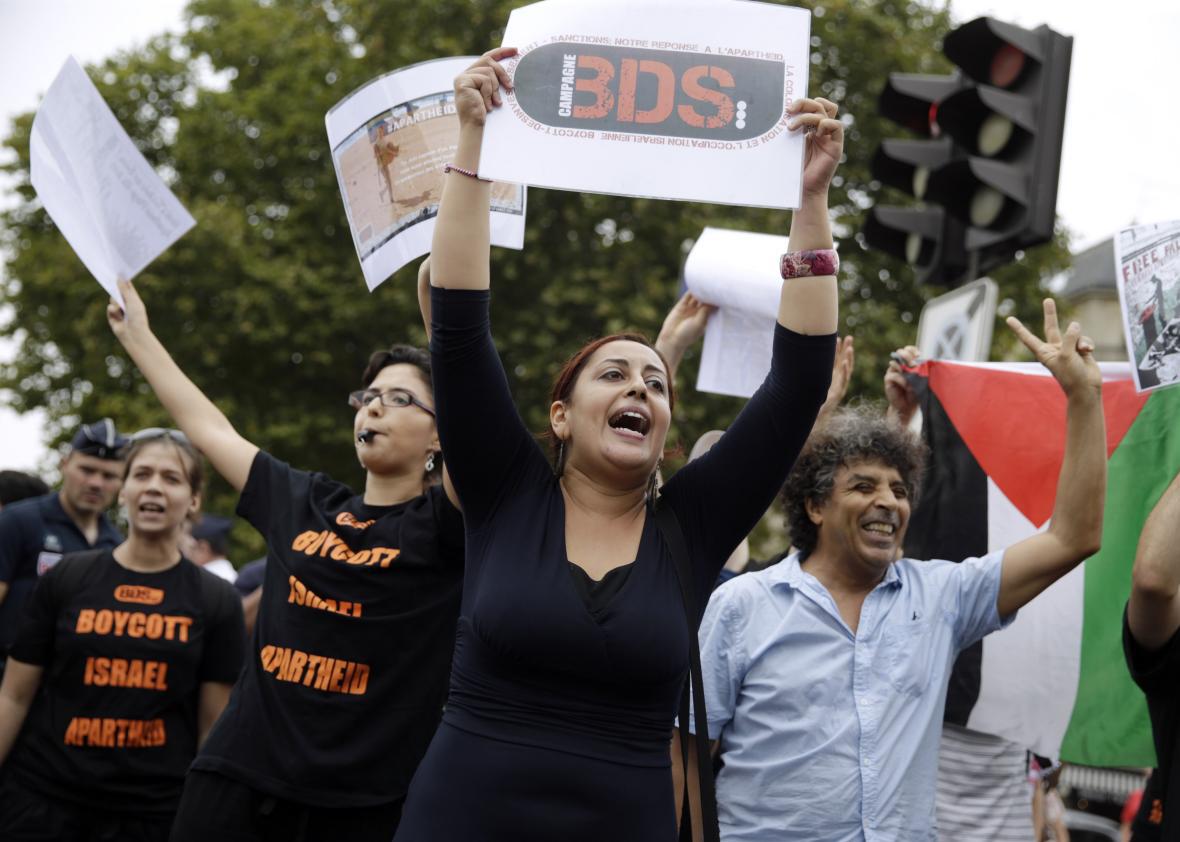On the same day that the Trump administration issued a revised version of its executive order, now barring travelers from six majority-Muslim countries, Israel’s Knesset passed a travel ban of its own. Israel’s ban targets foreigners who have called for boycotts of either Israel as a whole, or West Bank settlements.
The new law, sponsored by MKs from the far-right Jewish Home party as well as the centrist Kulanu party, is meant to combat the increasingly popular Boycott, Divestment, and Sanctions, or BDS, movement. It would deny entry visas to anyone “who knowingly issues a public call for boycotting Israel that, given the content of the call and the circumstances in which it was issued, has a reasonable possibility of leading to the imposition of a boycott—if the issuer was aware of this possibility.” The Washington Post notes:
The law, however, does not define what a ‘public call’ might be, whether it also includes statements on social media platforms such as Facebook or Twitter or simply signing a petition. It also does not state how exactly the Israeli authorities intend to enforce the ban.
The Justice Ministry had urged the Knesset members to make an exception for Palestinians with temporary residency status in Israel, but they did not. According to Haaretz, that could make it tougher for the law to stand up to an inevitable legal challenge.
The law, immediately compared by critics to Trump’s Muslim ban, is a disturbing attempt to silence critics of Israeli policy, and its vagueness only increases the possibility of abuse. It seems likely to encourage, rather than deter, the growth of the BDS movement, which supports boycotts of companies that do business in the settlements or are involved in the occupation of the West Bank, and urges academics and artists to avoid Israel. Critics in Israel and the United States charge that BDS is motivated by hostility not just to the settlements, but to Israel itself.
The attention that the Israeli government and its supporters in the United States have devoted to BDS is also particularly striking at a time when Prime Minister Benjamin Netanyahu and his government have been conspicuously silent about the marked increase of anti-Semitic threats, rhetoric, and vandalism in the United States. Israel’s Sephardic Chief Rabbi Yitzhak Yosef on Monday implored Netanyahu and Israeli diplomats “not to be silent about the phenomenon of Jewish cemetery desecration.”
Netanyahu has usually been quick to respond to attacks on Jews abroad, and portrays himself as a leader of the Jewish people, not just in Israel, but internationally. But now, he seems to be reluctant to feed criticism of his political ally, Donald Trump, for fomenting xenophobia and tolerating anti-Semitism among his supporters and allies.
